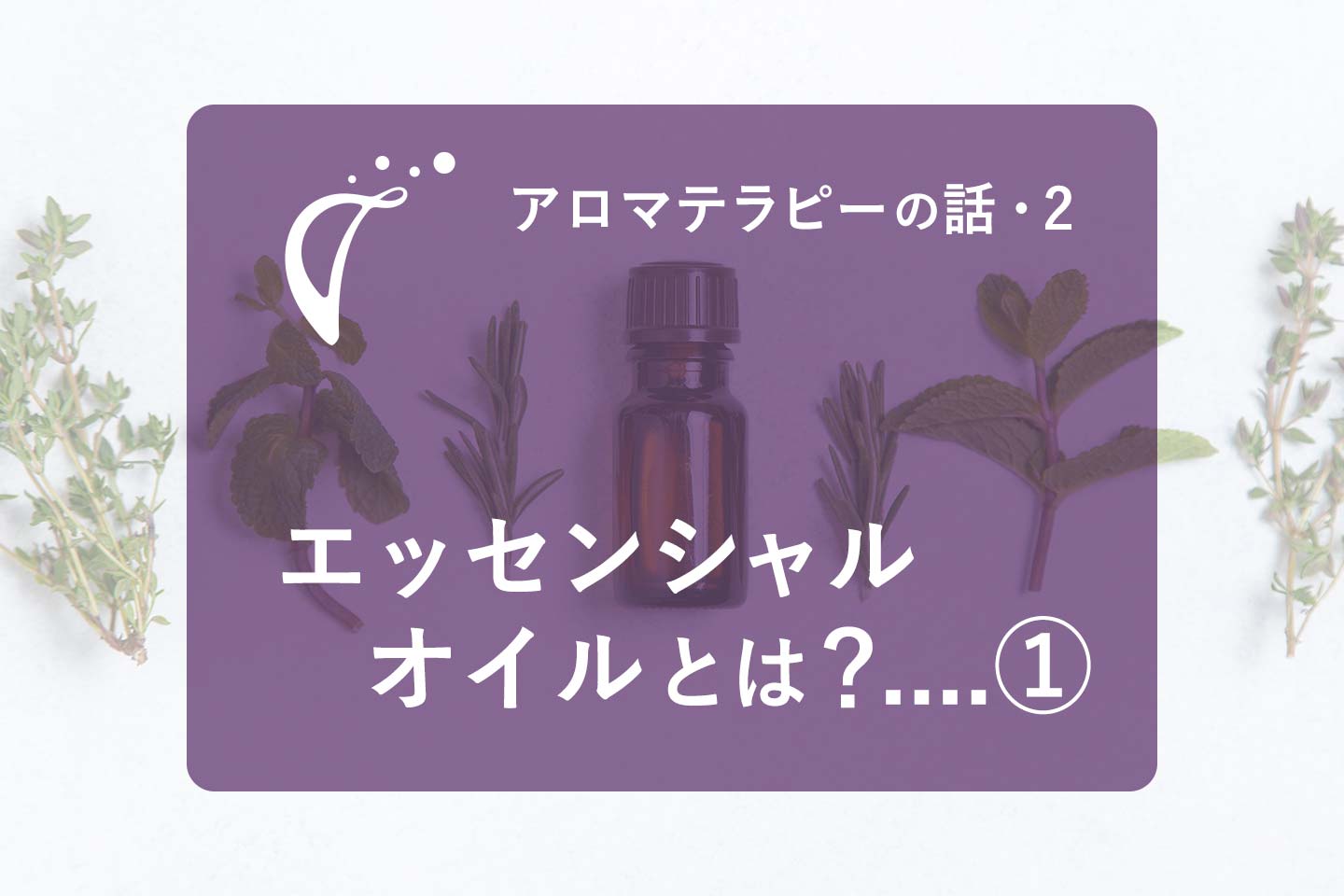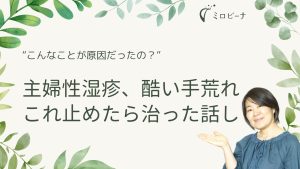Hello! My name is Kigawa, and I work for Bi Natural and Milobina.
Last time, what is aromatherapy really? So, today I would like to talk about essential oils, which are essential for aromatherapy.
We have already mentioned that essential oils have medicinal properties.
For example, simply smelling the scent of peppermint essential oil can restore normal stomach function and normalize the autonomic nervous system.
Eucalyptus can reduce the severity of asthma attacks and eliminate coughs before going to bed.
This is something that artificial fragrances can never do.
Also, some doctors use orange essential oil in psychosomatic medicine to treat depression and eating disorders.
In addition, as I wrote in the previous blog, lavender essential oil has the effect of promoting cell growth, speeding up metabolism, and has antioxidant effects, so it can be used to prevent age spots and maintain youthful skin. It will be blended.
That's why real essential oils have a variety of beneficial effects.
So far, we have talked about the benefits of essential oils for humans, but I would like to talk about what essential oils are for plants.
Understanding this will give you a deeper understanding of essential oils.
Essential oils are aromatic substances produced by plants to protect themselves.
As defined by the Aroma Environment Association of Japan (AEAJ), the largest aromatherapy organization in Japan.
“Essential oils are natural materials extracted from plant flowers, leaves, pericarp, fruits, heartwood, roots, seeds, bark, resins, etc., and are volatile aromatic substances containing high concentrations of active ingredients. Each plant has its own unique scent and function, which is the basis of aromatherapy.
It has been with.
Well, to put it a bit more complicated, essential oils are organic substances produced by plants.
Since the word organic matter has come up, let me first explain the difference between it and oil.
Because essential oils are called oils or essential oils, they tend to be thought of as a type of sticky oil, but they are fundamentally different.
Oil is a collection of various types of fatty acids. Fatty acids include oleic acid and linolenic acid.
Essential oils, on the other hand, are not fatty acids but a collection of volatile organic substances.
Oils do not evaporate, but essential oils do evaporate and diffuse their scent into the air. That's what gives it that nice scent.
Also, when you touch essential oils, they are not sticky, but smooth, so you can tell that they are completely different.
However, they do have similar properties, one of which is that they are fat-soluble. It is used in cosmetics because it can be diluted with plant oil and used as a massage oil or skin care oil.
The other is that it is lighter than water and floats when dropped into water.
Some of you may have enjoyed an aroma bath by dropping essential oils into your bath.
No matter how much you stir it, essential oils don't dissolve in hot water; they form small clumps that float on the surface of the water. You may have seen essential oils like this.
So, when you hear the word essential oil, you tend to think, ``Is it oil?'' However, I think it's good to have the basic knowledge that, while they have similar properties, they are completely different.
Now, I wrote earlier that essential oils are produced by plants to protect ourselves, but I would like to specifically introduce their typical functions.
First of all, the common function of all essential oils is ``antibacterial''.
Antibacterial is not exactly the same as sterilization, but the result is the same: it is an action that prevents bad bacteria that can make plants sick or rot. (acts only on bad bacteria)
As the name suggests, sterilization is the immediate killing of bacteria, and antibacterial is the action of reducing the number of bacteria and ultimately bringing them close to 0 by preventing them from multiplying. say.
Simply put, sterilization is highly effective against bacteria. Antibacterial agents have a weaker effect than that.
As a side note, I think that applying it to a mask and using it as a preventive measure against coronavirus is somewhat effective, but it takes too long to sterilize germs on the palms of your hands, so I recommend using soap instead. It is safe to wash your hands or sterilize with 60% or more alcohol.
Now, depending on the plant, there are strengths and weaknesses in the effect of inhibiting their reproduction, and tea tree essential oil, which is native to Australia, is famous for its strong antibacterial power.
This is a little off-topic, but tea tree has antibacterial properties as well as anti-inflammatory properties, making it an extremely beneficial essential oil that is effective against bacterial illnesses and skin problems.
It is often added to skin care products for acne care, oral care, foot care, etc.
An essential oil that has a similar effect on skin care, but has even higher skin care effects, is Japanese moon peach.
I would like to introduce this in detail somewhere else.
Another representative feature is its ability to heal wounds.
Plants cannot move under any circumstances. Therefore, it can be damaged by being stepped on, exposed to strong ultraviolet rays, water shortages, typhoons, etc.
It contains ingredients that repair damaged areas.
When I was little, my mother used to tell me, ``If you fall and get hurt, rub mugwort on your skin.'' Mugwort also has a unique aroma, doesn't it?
This is a Japanese herb that is antibacterial, calms inflammation, and contains ingredients that help heal wounds quickly, so it has the same effect on humans and heals wounds.
In fact, there are many other effects, but I will only introduce the most representative ones.Another indispensable one is the UV protection effect, or antioxidant effect.
Similarly, for plants that have no choice but to stay still in the same place, it is a matter of life and death to suffer from too strong ultraviolet rays.
As you know, when exposed to ultraviolet rays, cells undergo oxidation and a large amount of active oxygen is generated, which causes inflammation and destroys cells.
Plants, especially herbs, contain many components that remove generated oxygen, and plants native to areas with strong ultraviolet rays, such as Okinawa, Africa, areas near the equator, and Australia, have strong antioxidant effects. There are many herbs that have
If they didn't have antioxidants, they would quickly die from the sun.
The reason that they are able to grow vigorously and beautifully even under the intense sun is because they are able to produce large amounts of such antioxidant components.
Herbs are substances that have unique active ingredients and aromas that can only be found in plants. Essential oils are concentrated ingredients obtained from such herbs.
Usually, it is made by distilling herbs, and the distilled water with water-soluble ingredients dissolved in it is called aromatic distilled water, hydrosol, herbal water, herbal water, etc.
Water made from roses and lavender is also called floral water, and you may have heard of it at least once.
The essence slightly floating on top of the collected aromatic distilled water is essential oil, which is a precious oil that can only be extracted in small amounts. The ingredients are dissolved.
Essential oils are approximately 100 times more concentrated than when they were found in plants, making them extremely aromatic ingredients. If you use it directly, it will be too irritating, so be careful.
Since ancient times, this essential oil has been prized as the highest form of plant material, and is said to have been first distilled into alcohol by Arabian alchemists.
I've talked about this all at once, but next time I'd like to continue talking about essential oils.
Thank you for reading to the end today!
see you.







